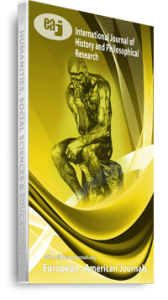An ambivalent appellation, acephalousness or non-centrality led to misinterpretations of the political systems and structures of Nigerian societies that obviously were not as professionalized as those in the erstwhile Empires and Emirates. Yet, the acephalous societies had political structures as much as the centralized ones. From the times of David Hume, Friedrich Hegel through to Hugh-Trevor Roper, African history faced distortions; and presented as unworthy of any kind of academic study. This was, unarguably, a crop-up from a Eurocentric misperception and misconception whereof Africa became labelled the “Dark Continent: waiting to be discovered by Europeans. Seemingly a justification of the colonization of Africa, African historians, nonetheless, became challenged to the best approaches in writing her history. Another challenge was the misconception that documentation or written history was the only acceptable history. Arab/Muslim scholars effectively covered the socio-political and economic activities in the centralized societies where they found employment as scribes or chroniclers. This study, first, attempted grasping at the contents, perspectives and methodology of African history; second, it examined the challenges inherent in the study of acephalous or stateless societies and, third, provided ample ways of addressing the challenges. The findings revealed that beyond written documents, oral traditions and the application of the interdisciplinary research approach were integral and indispensable parts in the historiography of African societies, especially of the acephalous. Using the primary and secondary sources, the study concluded that in spite of the limitations of oral traditions, they remained indispensable in interrogating the history of acephalous societies.
Keywords: Acephalous, ambivalent, centralized, historiography, misconception, oral traditions, stateless

